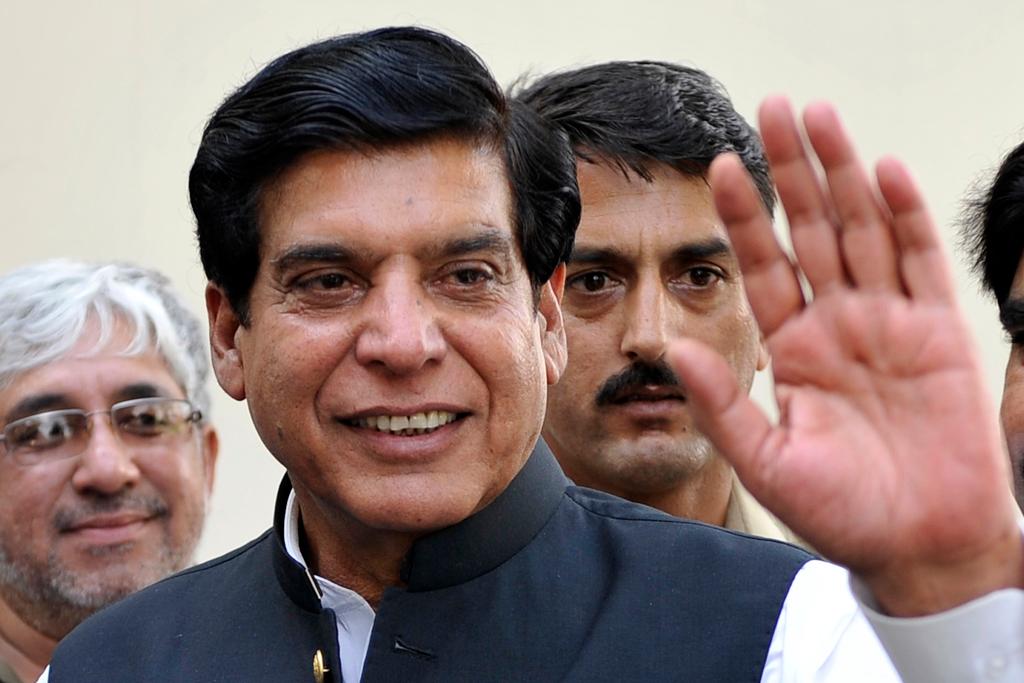Pakistan Supreme Court orders arrest of Prime Minister Raja Pervez Ashraf
Raja Pervaiz Ashraf, from the ruling Pakistan People’s Party, was elected prime minister by Pakistan’s parliament in Islamabad on June 22, 2102.
Pakistan's Supreme Court has ordered police to arrest Prime Minister Raja Pervez Ashraf for alleged corruption.
Arrest orders have also been issued for 15 others in the same case, which dates back to 2010, the BBC reported.
Ashraf is accused of taking bribes to approve new energy projects while he was Pakistan's minister for water and power. He denies the allegations.
All 16 defendants have been ordered to appear before the Supreme Court on Wednesday, the Express Tribune said.
The announcement sent the Karachi Stock Exchange plummeting by more than 450 points in half an hour, the Tribune reported.
One of Ashraf's aides told Reuters there was "no doubt" that the court's order was part of a conspiracy with the military to topple Pakistan's government.
Fuelling the speculation, the ruling coincided with a high-profile opposition march in Islamabad led by populist cleric Tahirul Qadri. He and thousands of supporters demanded the resignation of Pakistan's government, which he accuses of widespread corruption.
According to BBC correspondent M Ilyas Khan, the protesters were filmed triumphantly celebrating the court's decision – which has added weight to rumors that Qadri may be backed by "elements of the judiciary and military," who have long been in conflict with Pakistan's government.
More from GlobalPost: Political chaos engulfs Pakistan
It's not clear how the arrest order for Ashraf would affect a renewal of Pakistan's dispute with India after deadly exchanges along the disputed Kashmir border last week, when two Indian soldiers were killed.
"I strongly suspect that the cease-fire may break down despite the craven pusillanimity of the current regime in India," said Indiana University professor Sumit Ganguly, an expert on India-Pakistan affairs.
"This is not a spiral as they believe but a time for deterrence," Ganguly added. "The military establishment in Pakistan needs to be sent a clear message that India finds these probing actions to be intolerable."
Ganguly said the Pakistani Supreme Court's call for Ashraf's arrest would have little or no impact on developments along the Line of Control, as the Pakistani army and intelligence agency, rather than the elected government, makes these decisions.
"The PM has little or no authority anyway," said Ganguly. "Consequently, whether or not he is arrested is of little consequence to the military."
"I think they will ratchet it down, because it doesn't really benefit either side," said Shuja Nawaz, director of the South Asia Center of the Atlantic Council of the United States.
As GlobalPost reported last year, the Supreme Court convicted Ashraf's predecessor, Raza Yousuf Gilani, of fraud for failing to reopen a graft investigation against President Asif Ali Zardari, and then ruled that the premier was ineligible to continue holding office.
One of Zardari's confidantes told GlobalPost's Suzanna Koster at the time that "the clash between the judiciary and the government dated back to 2008, and was at least in part personal."
The scandal involving Ashraf has been dubbed the "Rental Power Plants" case, according to Pakistan's Nation newspaper, earning the premier the nickname "Rental Raja."
Nine companies were said to have received more than 22 billion Pakistani rupees from the government as down payments for the new projects, yet "most of them did not set up their plants and a few of them installed them but with inordinate delay," the Nation said.
Ashraf was accused of using the proceeds to buy property in London.
According to News Pakistan, the Supreme Court ordered an investigation into the allegations last year, but no action had been taken until now.
More from GlobalPost: Pakistan finally catches on to 'witness protection'
